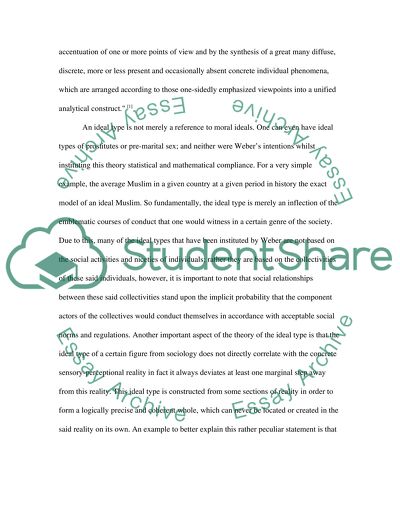Cite this document
(“Weber's Ideal Types Book Report/Review Example | Topics and Well Written Essays - 2250 words”, n.d.)
Retrieved from https://studentshare.org/sociology/1521801-webers-ideal-types
Retrieved from https://studentshare.org/sociology/1521801-webers-ideal-types
(Weber'S Ideal Types Book Report/Review Example | Topics and Well Written Essays - 2250 Words)
https://studentshare.org/sociology/1521801-webers-ideal-types.
https://studentshare.org/sociology/1521801-webers-ideal-types.
“Weber'S Ideal Types Book Report/Review Example | Topics and Well Written Essays - 2250 Words”, n.d. https://studentshare.org/sociology/1521801-webers-ideal-types.


